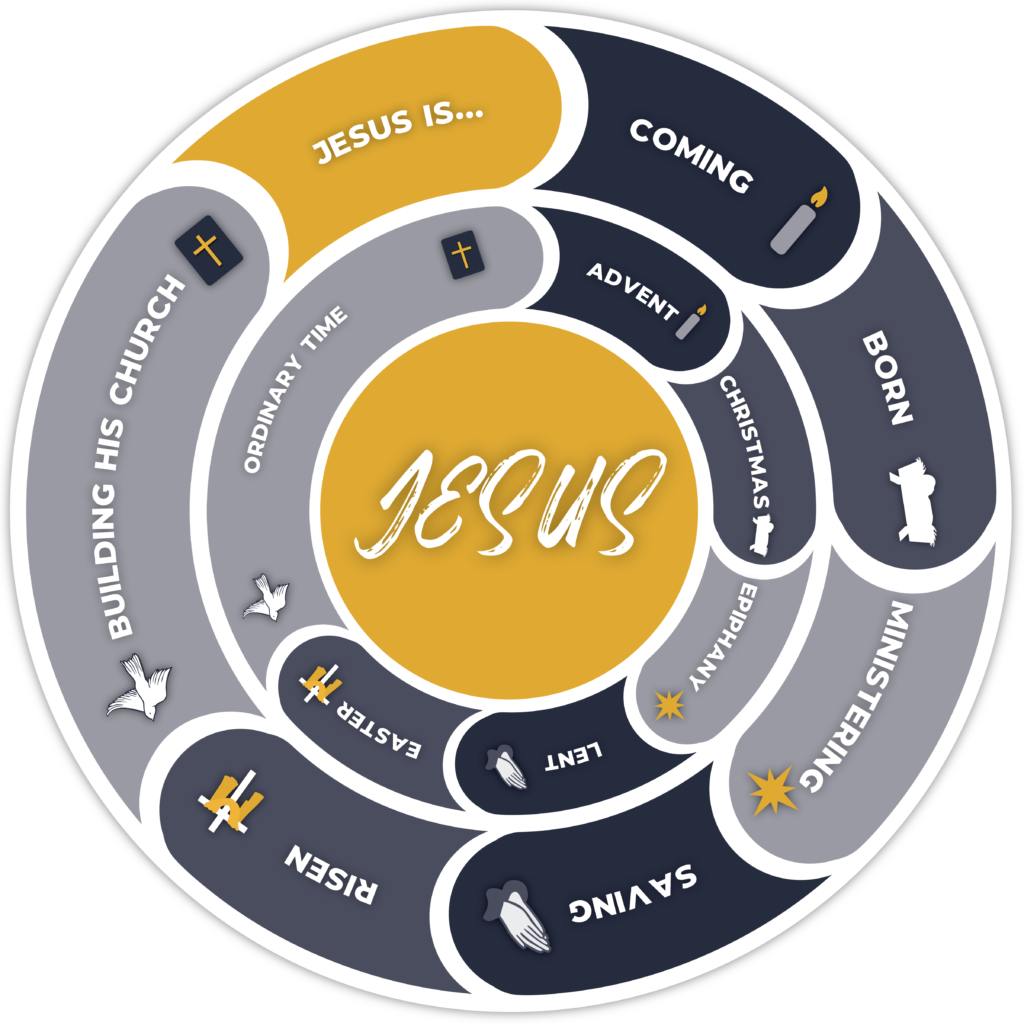The Revised Common Lectionary helps us stay focused on the Worship Calendar, which helps us stay centered on Jesus, who is the center of everything.
 By Glen A. Weber, Regional Support Team, US Central
By Glen A. Weber, Regional Support Team, US Central
Like many of you, I was not a fan of the Revised Common Lectionary (RCL). I had all the usual thoughts about its origins, restrictiveness, my great Holy Spirit inspiration of topics, and other objections. It had taken me years to learn how to exegete a passage rather than give “concordance sermons.” I was one who had my sermon topics and basic passages chosen several weeks or months in advance.

Four years before I retired, I began to occasionally use the lectionary, especially on weeks when I didn’t feel “my passage/topic” was appropriate for that time. Most of the time, however, I was still using the “Glen Weber Chosen Lectionary.” I had created my own lectionary out of resistance to something created by pastors/bishops/scholars who worked together to focus on Jesus, the worship calendar, and to ensure pastors preached through the Bible every three years. The members were not aware of which sermons were from the RCL, and which were from my personal lectionary. Interestingly, many of the best comments from those in the congregation were coming on the weeks I used the lectionary.
Although I preach less often now that I am retired, I continue to use the RCL when I preach. It has worked out that I have either been asked or needed to replace our pastor on several Christian worship days. Even when I wonder about the scripture passages chosen for a particular worship day, I can always find something in the RCL passages that relates to the current calendar event. Here is an example:
How is this possible?
For Ascension Sunday (possibly the most important worship day of the Christian year, in my opinion), the Gospel passage was John 17:20-25, where Jesus is praying to the Father for those who were disciples then, and for those who would believe in the future. Knowing the Ascension was about Jesus returning to the Father, I was meditating through the passage for what might apply to the ascension. And there it was, in verse 24: “Father, I desire that they also, whom you have given me, may be with me where I am, to see my glory that you have given me because you loved me before the foundation of the world.” (Emphasis mine.)
Jesus wanted humanity to be with him where he would be – in the presence of God!
It was further affirmation that the key to our preaching is always keeping Christ at the center of our messages, particularly when we come to the annual reminders of Jesus’ incarnation, birth, death, burial, resurrection, ascension, and sending of the Holy Spirit. Getting sidetracked by trivia or overemphasis of Greek works and similar thoughts are not necessarily helpful to focusing listeners on the work of Jesus in the life of creation and humanity.
The week after Ascension Sunday, I was also asked to preach on Pentecost. The Epistle passage was Romans 8:14-17, where Paul writes about being led by the Spirit and that we have been given the Spirit of adoption. I called this sermon “The Ascension Extended” and referred to the reality, from the previous week, that after Jesus ascended to the Father, he then extended himself back to humanity through the Holy Spirit.
In my early years of preaching, I would have never felt comfortable preaching a sermon out of four verses! Now it has become a common practice that not only keeps my sermons shorter (many are shouting hallelujah) but it also gives me opportunity to focus more intentionally on Christ. Thanks to Facebook and other social media, one can always have quotes/memes available to add to the message.
During this season of Ordinary Time, the RCL passages give us ample opportunity to focus on what the Holy Spirit does in the ministry of Jesus through the church. I am writing most of this on the afternoon after our pastor just preached an important sermon from the Old Testament pericope on Christ’s healing ministry from the example of Naaman in 2 Kings 5.
Very soon we will be approaching the beginning of the new worship year with Advent, the 12 days of Christmas, Epiphany, and beyond. May we all take advantage of this amazing lectionary used by millions every week and ask the Holy Spirit to show us how to focus on Jesus Christ, who is the Center of our worship of the Father.



Please note that comments are moderated. Your comment will not appear until it is reviewed.